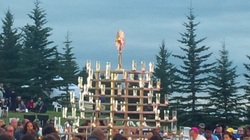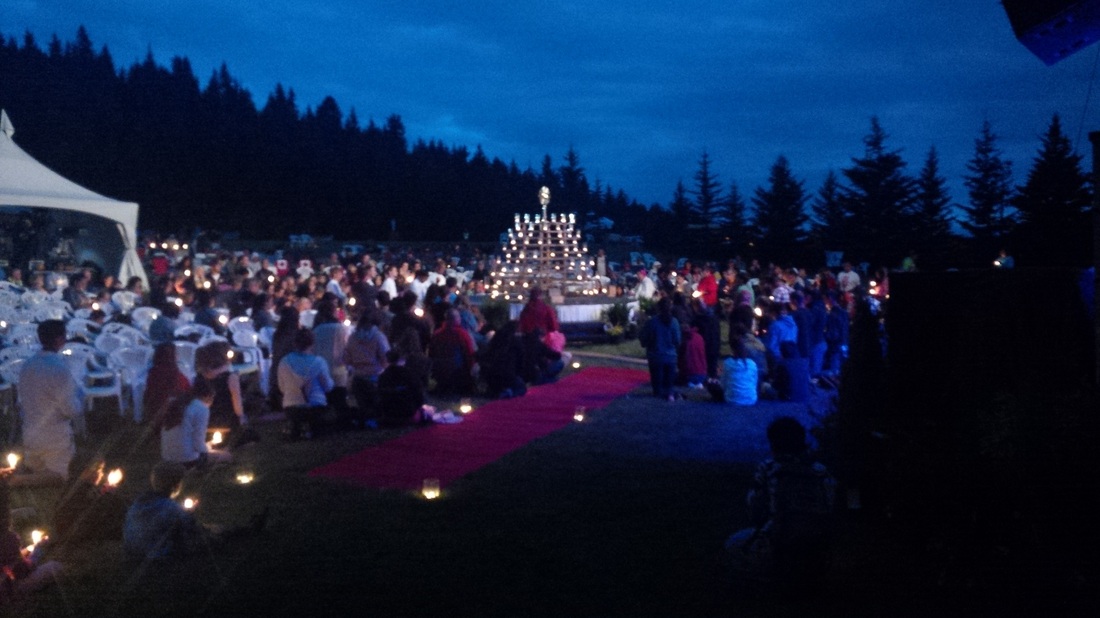On Wednesday Feb. 19th the Holy Father gave and interesting teaching on the Sacrament of Reconciliation. I include the text from the media office at the Vatican.
GENERAL AUDIENCE: Confession
The Holy Father dedicated his catechesis at this Wednesday's general audience to the Sacrament of penance. After touring St. Peter's Square in an open car, greeting the thousands of faithful who applauded as he passed, the Pope explained that “the forgiveness of our sins is not something we can offer to ourselves; it is not the result of our efforts, but rather a gift from the Holy Spirit, which fills us from the wellspring of mercy and grace that surges endlessly from the open heart of Christ, crucified and risen again. … It reminds us that it is only by allowing ourselves to be reconciled through the Lord Jesus with the Father and with our brothers that we may truly be at peace”.
Pope Francis explained that the celebration of this Sacrament has transformed from its previously public nature to the private and reserved form of Confession. However, “this should not lead to the loss of the ecclesiastical matrix, which constitutes its living context. Indeed, the Christian community is the place in which the presence of the Spirit is felt, which renews hearts in God's love and brings all brothers together as one, in Jesus Christ”. He continued, “For this reason, it is not enough to ask for the Lord's forgiveness in our own minds and hearts, but rather it is also necessary to humbly and trustfully confess our sins to a minister of the Church”.
The Bishop of Rome emphasised that the priest does not only represent God, but rather the community as a whole, and that anyone who seeks to confess only to God should remember that our sins are also committed against our brothers and against the Church, which is why it is necessary to ask forgiveness from them too, and to be ashamed for what we have done. “Shame can be good”, he affirmed; “It is good for us to have a certain amount of shame, because to be ashamed can be healthy. When someone has no shame, in my country we describe them as “sin verguenza”, shameless. Shame can be good as it can make us humble, and the priest receives this confession with love and tenderness, and forgives in the name of God. Also from a human point of view, to unburden oneself, it is good to speak with a brother and to tell the priest those things which lie so heavily upon our hearts. And one feels unburdened before God, with the Church, and with a brother. Do not be afraid of Confession!”
The Pontiff went on to ask those present when they last confessed, and strongly urged them not to overlook Confession. “If a long time has passed, do not waste another day, go, the priest will be good. It is Jesus who is there, and Jesus is better than a priest, Jesus will receive you, he will receive you with love. Be courageous and go to Confession! … Every time we confess, God embraces us, God celebrates! Let us go ahead on this path. May God bless you!”
Pope Francis, courtesy of Fr. Thomas Rosica, CSB, English language assistant, Holy See Press Office.
GENERAL AUDIENCE: Confession
The Holy Father dedicated his catechesis at this Wednesday's general audience to the Sacrament of penance. After touring St. Peter's Square in an open car, greeting the thousands of faithful who applauded as he passed, the Pope explained that “the forgiveness of our sins is not something we can offer to ourselves; it is not the result of our efforts, but rather a gift from the Holy Spirit, which fills us from the wellspring of mercy and grace that surges endlessly from the open heart of Christ, crucified and risen again. … It reminds us that it is only by allowing ourselves to be reconciled through the Lord Jesus with the Father and with our brothers that we may truly be at peace”.
Pope Francis explained that the celebration of this Sacrament has transformed from its previously public nature to the private and reserved form of Confession. However, “this should not lead to the loss of the ecclesiastical matrix, which constitutes its living context. Indeed, the Christian community is the place in which the presence of the Spirit is felt, which renews hearts in God's love and brings all brothers together as one, in Jesus Christ”. He continued, “For this reason, it is not enough to ask for the Lord's forgiveness in our own minds and hearts, but rather it is also necessary to humbly and trustfully confess our sins to a minister of the Church”.
The Bishop of Rome emphasised that the priest does not only represent God, but rather the community as a whole, and that anyone who seeks to confess only to God should remember that our sins are also committed against our brothers and against the Church, which is why it is necessary to ask forgiveness from them too, and to be ashamed for what we have done. “Shame can be good”, he affirmed; “It is good for us to have a certain amount of shame, because to be ashamed can be healthy. When someone has no shame, in my country we describe them as “sin verguenza”, shameless. Shame can be good as it can make us humble, and the priest receives this confession with love and tenderness, and forgives in the name of God. Also from a human point of view, to unburden oneself, it is good to speak with a brother and to tell the priest those things which lie so heavily upon our hearts. And one feels unburdened before God, with the Church, and with a brother. Do not be afraid of Confession!”
The Pontiff went on to ask those present when they last confessed, and strongly urged them not to overlook Confession. “If a long time has passed, do not waste another day, go, the priest will be good. It is Jesus who is there, and Jesus is better than a priest, Jesus will receive you, he will receive you with love. Be courageous and go to Confession! … Every time we confess, God embraces us, God celebrates! Let us go ahead on this path. May God bless you!”
Pope Francis, courtesy of Fr. Thomas Rosica, CSB, English language assistant, Holy See Press Office.



 RSS Feed
RSS Feed